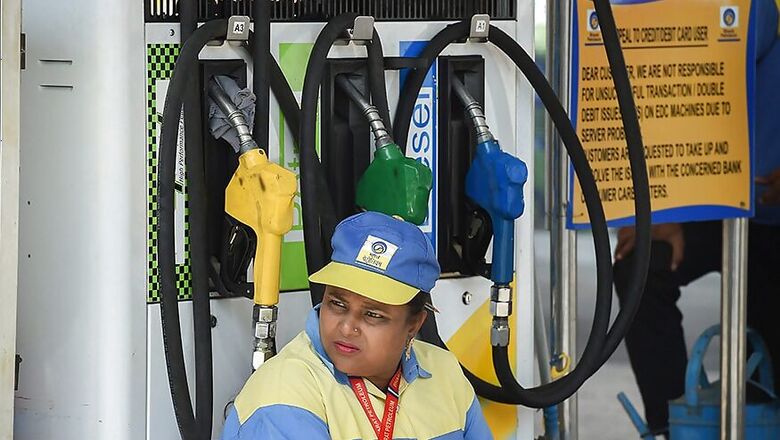
views
Finance Minister Nirmala Sitharaman on Monday took authorisation to raise excise duty on petrol and diesel by Rs 8 per litre each in future as Parliament passed the Finance Bill, 2020, that also allowed pension funds to be treated like sovereign wealth funds.
First, the Lok Sabha passed the Finance Bill, 2020, without a discussion and then the Rajya Sabha returned it without a discussion, all in a matter of few hours.
The Rajya Sabha also returned without debate the Appropriation Bill 2020-21, authorising the government to draw over Rs 110 lakh crore from the Consolidated Fund of India for its working as well as the implementation of its programmes and schemes.
Last week, the Lok Sabha passed the demands for grants.
With this, the Parliament approval of the Budget for 2020-21 has been completed.
Among the amendments to the Finance Bill, 2020, that Sitharaman introduced and got the approval of included changes to make NRI-owned business being made liable to pay taxes on income generated by Indian operations only.
Also, a 20 per cent TDS rate for the dividend paid to NRI/foreign company was approved. Also, REITS was exempt from dividend tax.
The key change in the Finance Bill was an amendment to the law to give the government enabling powers to raise excise duty on petrol and diesel by Rs 8 per litre each in future.
Sitharaman moved an amendment to the Finance Bill, 2020, to raise the limit up to which the government can raise special excise duty on petrol and diesel to Rs 18 per litre and Rs 12 per litre, respectively.
This was along with other amendments as also the Finance Bill was passed without debate.
The government had on March 14 raised excise duty on petrol and diesel by Rs 3 per litre each to raise an additional Rs 39,000 crore in revenue annually. This duty hike included Rs 2 a litre increase in special additional excise duty and Re 1 in road and infrastructure cess.
This hike took the special additional excise duty to maximum permissible limit in law -- Rs 10 in case of petrol and Rs 4 in case of diesel.
Now, through an amendment to the Eighth Schedule of the Finance Act, this limit has been increased to Rs 18 per litre in case of petrol and Rs 12 in case of diesel.
This is an enabling provision and no change in excise duty is being done as of now, an official said.
The amendment gives powers to the government to raise the duty by up to Rs 8 per litre in petrol and diesel at any time it wishes.
The excise duty hike of March 14 was done to take away gains arising from a slump in international oil prices.
According to a notification issued by the Central Board of Indirect Taxes and Customs, special excise duty on petrol was hiked by Rs 2 to Rs 8 per litre in case of petrol and to Rs 4 a litre from Rs 2 in case of diesel.
Additionally, road cess was raised by Re 1 per litre each on petrol and diesel to Rs 10.
With this, the total incidence of excise duty on petrol has risen to Rs 22.98 per litre and that on diesel to Rs 18.83.
The tax on petrol was Rs 9.48 per litre when the Modi government took office in 2014 and that on diesel was Rs 3.56 a litre.
The government had between November 2014 and January 2016 raised excise duty on petrol and diesel on nine occasions to take away gains arising from plummeting global oil prices.
In all, duty on petrol rate was hiked by Rs 11.77 per litre and that on diesel by 13.47 a litre in those 15 months that helped the government's excise mop-up more than double to Rs 2,42,000 crore in 2016-17 from Rs 99,000 crore in 2014-15.
It cut excise duty by Rs 2 in October 2017 and by Rs 1.50 a year later. But, it raised excise duty by Rs 2 per litre in July 2019.


















Comments
0 comment